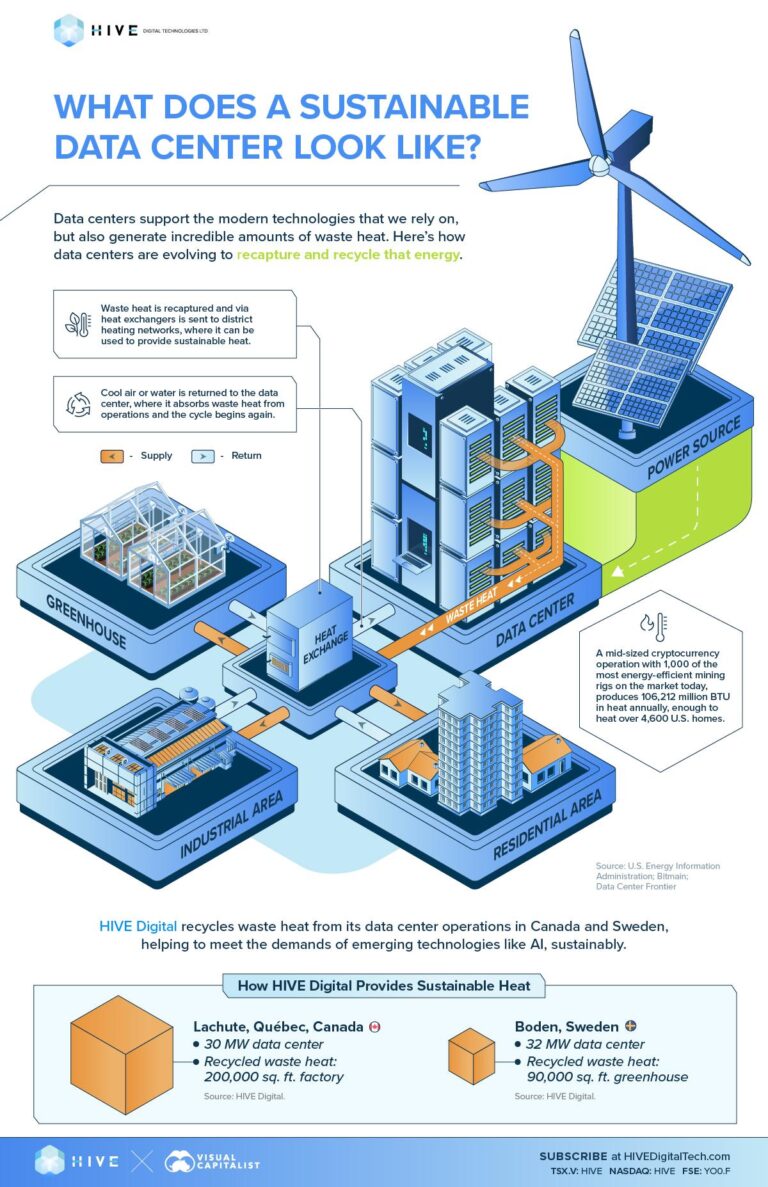Brazil is positioning itself as a future leader in sustainable data center infrastructure, aiming to attract global technology companies with promises of abundant renewable energy and favorable climate conditions. However, environmentalists remain cautious, questioning whether the country’s ambitions can truly align with ecological preservation and local community interests. As Brazil vies to become a key player in the expanding digital economy, the debate highlights the complex balance between technological growth and environmental sustainability.
Brazil’s Ambitious Push to Become a Green Data Center Powerhouse
Brazil is making a bold stride toward positioning itself as a major player in the sustainable data center market. Leveraging its abundant renewable energy resources-primarily hydropower, wind, and solar-the country aims to attract global tech giants seeking greener operations. Several projects are already underway, including partnerships with international cloud providers and government incentives designed to reduce carbon footprints. Key factors driving Brazil’s push include:
- Access to cheap, clean energy from the Amazon basin and northeastern wind farms
- Strategic geographic location for serving North and South American markets
- Growing domestic tech ecosystem demanding more advanced infrastructure
- Government policies encouraging investment in green technologies
Despite this promising outlook, environmentalists remain wary of the potential ecological impacts hidden behind the glossy sustainability claims. Critics highlight concerns over:
- Deforestation risks due to expanding infrastructure near the Amazon
- The actual carbon footprint of large-scale data centers, which require massive water and energy consumption
- Poor regulatory enforcement that may allow greenwashing without true accountability
| Aspect | Government Claims | Environmentalist Concerns |
|---|---|---|
| Energy Source | Renewable (Hydro, Solar, Wind) | Overreliance on hydro may affect river ecosystems |
| Land Use | Reusing degraded lands | Risk of encroaching on protected areas |
| Carbon Footprint | Significant reductions planned | Energy consumption growth outpaces savings |
Environmental Concerns Cast Doubt on Brazil’s Sustainable Tech Vision
While Brazil is positioning itself as a prime location for cutting-edge, environmentally friendly data centers, environmental advocates remain unconvinced. The country’s abundant natural resources and cooler climate offer natural advantages for energy-efficient operations. However, concerns linger about the potential adverse effects on local ecosystems, deforestation rates, and freshwater consumption. Environmentalists emphasize that without strict regulatory frameworks and transparency, the tech expansion risks exacerbating existing environmental challenges rather than alleviating them.
Key environmental issues raised include:
- Increased water usage in regions already facing scarcity
- Potential disruption to biodiversity hotspots
- Lack of comprehensive impact assessments prior to large-scale infrastructure projects
| Environmental Factor | Potential Impact | Mitigation Strategy |
|---|---|---|
| Water Consumption | Strain on local water sources | Implementation of water recycling technologies |
| Land Use | Deforestation and habitat loss | Prioritize brownfield sites and degraded lands |
| Energy Mix | Dependency on non-renewable sources | Investment in solar and wind energy |
Experts Recommend Stronger Regulatory Frameworks to Ensure Eco-Friendly Growth
Amid Brazil’s ambitious push to position itself as a leading sustainable data center hub, industry experts are urging policymakers to implement more robust regulatory frameworks that prioritize environmental protection over rapid industrial growth. They emphasize that without stringent guidelines and transparent impact assessments, the country risks replicating patterns seen in other regions where technological expansion has outpaced ecological considerations. Regulations should mandate the use of renewable energy sources, enforce strict waste management protocols, and require comprehensive biodiversity impact studies before new data centers can be approved.
Environmentalists further highlight that current proposals are vague and lack enforceable benchmarks, potentially allowing operators to exploit loopholes. To illustrate the gap, experts suggest a tiered regulatory approach that could include the following components:
- Mandatory carbon emission caps aligned with national climate goals
- Incentives for green technology adoption such as battery storage and advanced cooling systems
- Regular third-party audits ensuring ongoing compliance with environmental standards
- Community engagement requirements to address local environmental and social concerns
| Regulation Focus | Proposed Measure | Expected Impact |
|---|---|---|
| Energy Consumption | Renewables mandatory in energy mix | Cut COâ‚‚ emissions by 40% |
| Water Use | Limits on freshwater withdrawal | Reduce water footprint by 35% |
| Waste Management | Zero e-waste landfill policy | Improve recycling rates by 60% |
In Summary
As Brazil positions itself to become a leading sustainable data center hub, the tension between technological ambition and environmental preservation remains at the forefront. While government initiatives emphasize green energy and reduced carbon footprints, environmentalists caution that infrastructure expansion could imperil fragile ecosystems and biodiversity. The coming years will reveal whether Brazil can successfully balance its digital aspirations with the urgent need for environmental stewardship, setting a precedent for sustainable development in the region and beyond.




